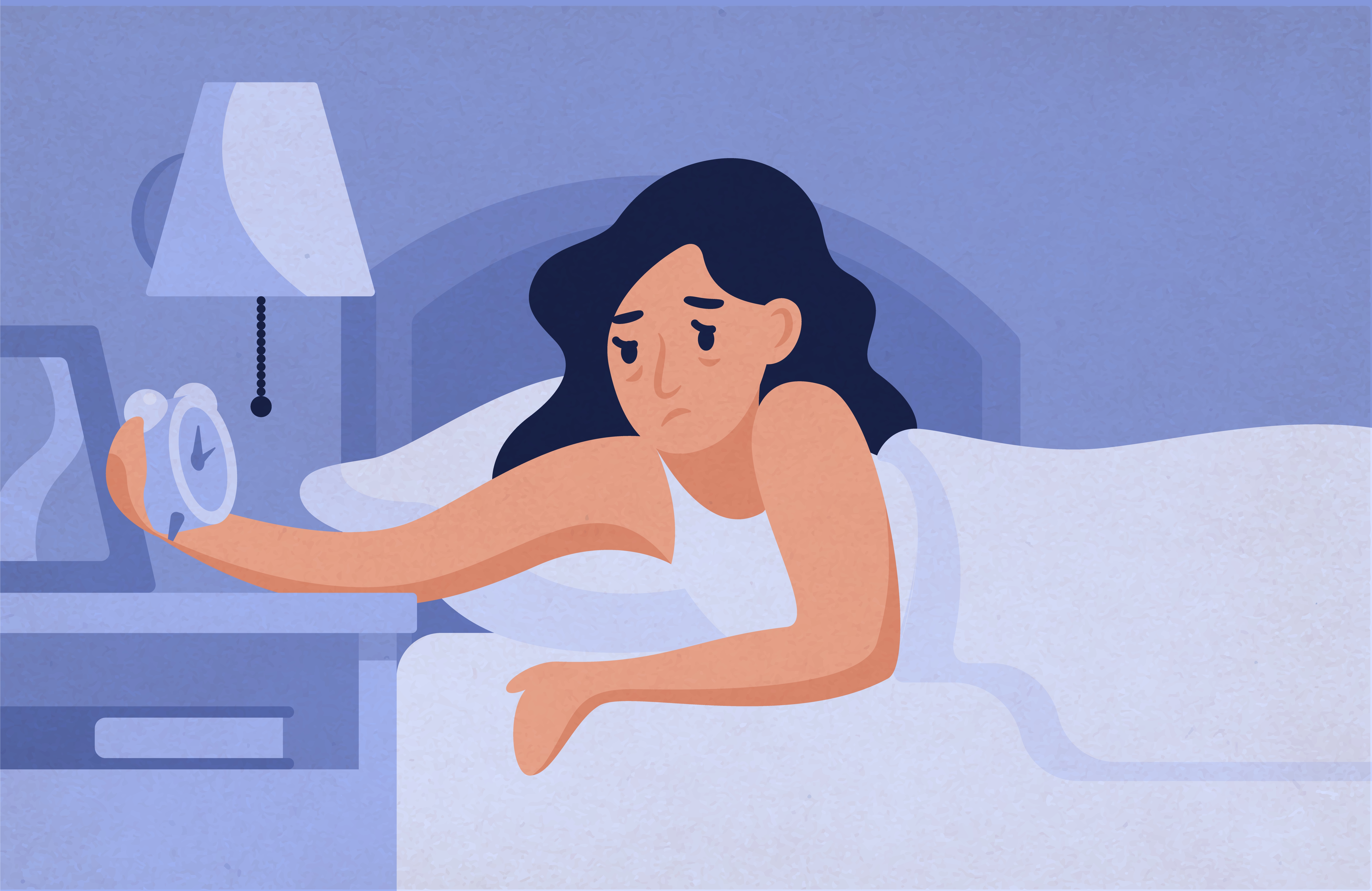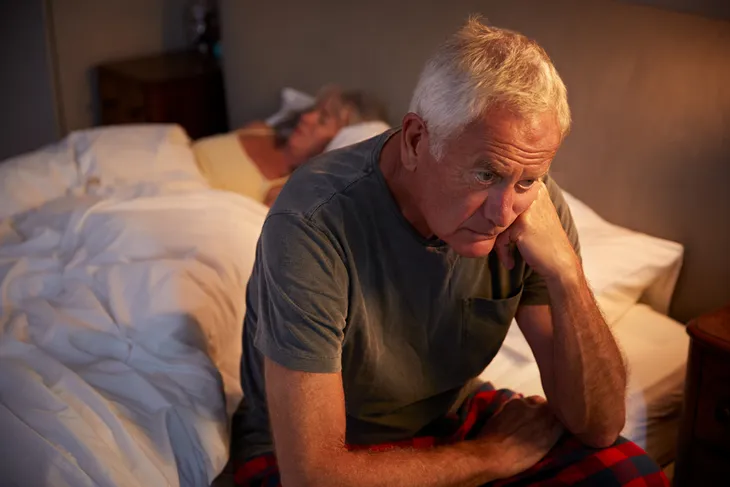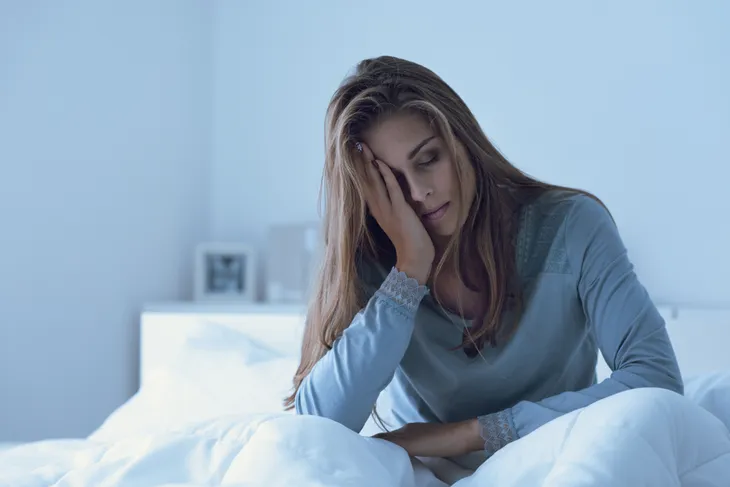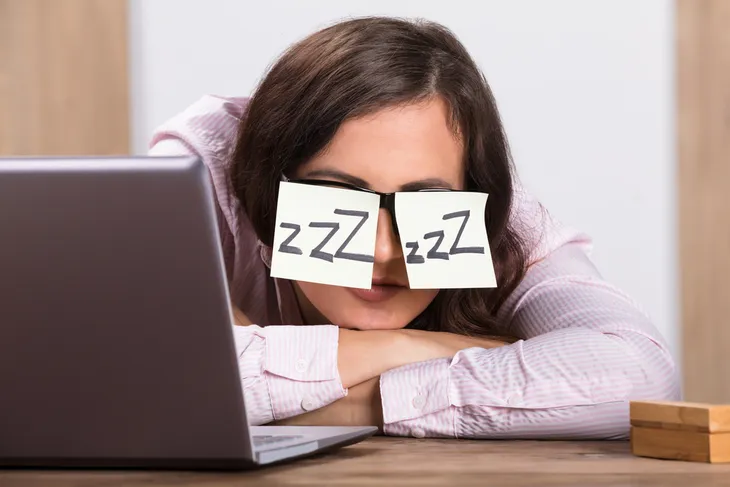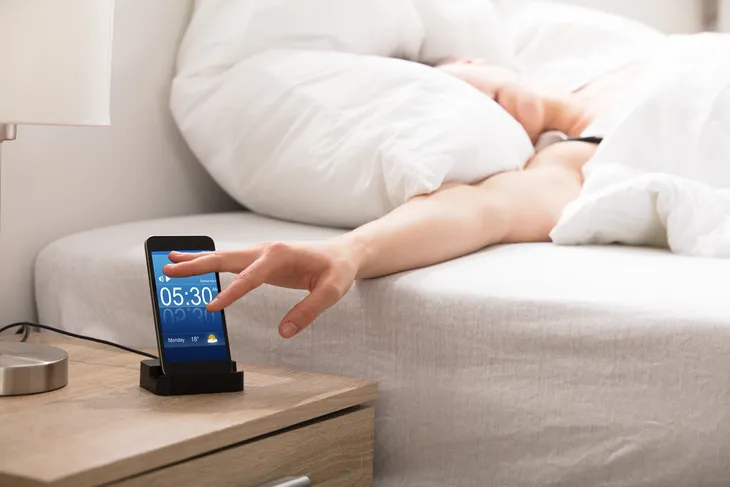It never seems like I can get enough sleep, no matter how much I try to go to bed early or make up time on the weekends. My cat has zero trouble—falling asleep on the stairs, the couch, the bed, sprawled out on the floor, or behind my laptop. And he sleeps for what seems like at least 20-hours per day. Maybe I’m just jealous, but if the average house cat is getting that much sleep—what does it say for us humans?
According to research from the University of Arizona, sleep, or lack thereof, can predict all sorts of chronic conditions—from hormonal to heart disease, and from diabetes to dementia. Lack of sleep can even cut our life expectancy. Sleep is obviously important. Here’s how to determine if you’re getting too little, and if you’re dealing with insomnia…
You Can’t Shut Off Your Brain…
You know the drill. You lie down to go to sleep because you’re exhausted, but the hamster wheel in your brain starts going round and round, keeping you from getting any shuteye. Suddenly it’s 6am and you’ve gotten zero sleep.
For insomnia to be considered chronic by a doctor, it must occur a minimum of 3-nights per week for at least a 3-month duration, according to the American Sleep Association. And scientists refer to the notion of a never-ceasing hamster wheel in your brain as behavioral or comorbid (i.e., medical or psychiatric) rooted insomnia that keeps your brain awake.
Conditioned Arousal
Do you go to bed at the witching hour only to find yourself wide-eyed and alert? You might be suffering from a form of insomnia known as conditioned arousal. Researchers at John Hopkins University, claim that this pattern of going to bed, but remaining wide awake over the long term will often cause increased alertness.
Insomniacs suffering from conditioned arousal draw an association between their bedrooms and being awake. So much so that the activity in the part of the brain that controls movement increases when you go to bed and interferes with sleep. To combat the lack of shut eye, keep a sleep journal to pinpoint patterns that are keeping you from sleeping and be sure to wind down your day gradually at least a few hours before hitting the hay (i.e., shut off electronics, have a bath, get in your PJs, and meditate).
Sleep Influences Your Regular Life
I’m talking about far more than you suffering from a night of restless sleep and nodding off in a boring work meeting the following day. Real insomnia affects daily life in vital ways. For instance, researchers at the University of Pennsylvania claim that extreme fatigue can impact work productivity, social enjoyment, family obligations, and favorite pastimes.
Individuals who suffer lack of shuteye can be more vulnerable to stress, depression, and feelings of anger. If your mood becomes altered due to lack of sleep—you might consider speaking to your doctor about insomnia. He or she may refer you to a sleep specialist for further help.
Powerful Cravings
Sure, there are the sugar and carbohydrate cravings connected to a lack of sleep the following day. However, using caffeine to make up for lost sleep actually has a counterproductive affect, according to Harvard University.
Sipping excess caffeine inhibits the secretion of chemicals (i.e., acetylcholine) required for sleep drive within the body—and instead creates feelings of wakefulness. You’d be much better off tiring yourself with exercise throughout the day to signal that still time means sleepy time.
How Many Times Do You Hit Snooze?
A study published by the journal, Proceedings of the National Academy of Sciences, pointed to a prime zzzzz-robbing culprit—light from technical devices. That means your smart phone, laptop, tablet, television, and even your e-reader can impede natural sleep cues and knock your sleep off schedule.
Going to bed with a device on can also make it much harder to get up in the morning—meaning you might need to hit snooze repeatedly. The best way to set your internal sleep clock is to get up and go to bed at relatively the same time every day—including on weekends.
